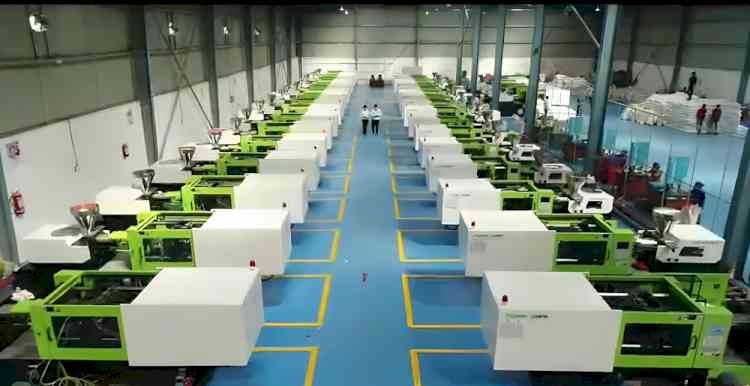DST Project for Neutrino Collaboration with Fermilab
Author(s): City Air NewsChandigarh, April 22, 2019: Panjab University, Physics Department has been sanctioned a grant of Rs.1.89 Crore by the Department of Science and Technology (GST), Government of India for five years to participate...

Chandigarh, April 22, 2019: Panjab University, Physics Department has been sanctioned a grant of Rs.1.89 Crore by the Department of Science and Technology (GST), Government of India for five years to participate in a frontline neutrino research program in collaboration with the Fermi National Accelerator Lab (Fermilab) Chicago, USA.
Many international institutes and universities are part of the program. The group at Physics Dept. involves Prof. Vipin Bhatnagar (Principal Investigator) and Dr. Ashok Kumar (Co-Investigator) in this experiment. The group members have been participating in the neutrino experiments at Fermilab since 2010. Earlier also, in 2012, a grant of Rs. 2.33 was sanctioned by DST to collaborate in the same program.
Four students have already been awarded the Ph. D. degree and two more are going to submit soon working on NOvA neutrino experiment. The sanctioned grant will enable the group members and the Ph.D. scholar to actively participate in all aspects of the neutrino experiments, starting from the R & D stage to physics and detector simulations for the upcoming experiments, detector/electronics testing for the upgrades of the existing experiments, participating in the data acquisition and physics analyses. Physics department has been collaborating with Fermilab since 1990 and has actively worked on the DZERO experiment (resulted in the discovery of Top quark in 1995) which stopped data taking in September 2011 after the Tevatron accelerator was closed.
The neutrino program at Fermilab involves both the long baseline experiments as well as the short baseline experiments to study the characteristics of the elusive neutrino particle which has very weak interaction with matter so that they can traverse through even dense matter (like the core of the earth) without any difficulty. Trillions of neutrinos are passing through the human body every second without any harm. Earlier, it was thought that neutrinos are mass-less particles. But now we know that the neutrinos have small mass. However, we do not know the masses of the different neutrino types, nor do we know the neutrino mass hierarchy – that is, which kind of neutrino is the lightest and which is the heaviest. Therefore, one of the aims of these experiments is to know the ordering of the neutrino masses.
There are three types/flavors of neutrinos: electron neutrino, muon neutrino and tau neutrino and their anti neutrinos. These measurements will also provide the information about the neutrino and antineutrino oscillations into different flavors. If these measurements could establish that antineutrinos do not follow the same oscillation pattern as neutrinos when they change from one flavor to another flavor, this is a signal of CP violation. This could be a clue to why the universe has more matter than antimatter. The other participating institutes, besides Panjab University, from India are University of Delhi, AMU, BHU, IITH, University of Hyderabad, CUSAT Kochi, University of Jammu, IITG, and NISER Bhubaneswar.

 cityairnews
cityairnews 
















